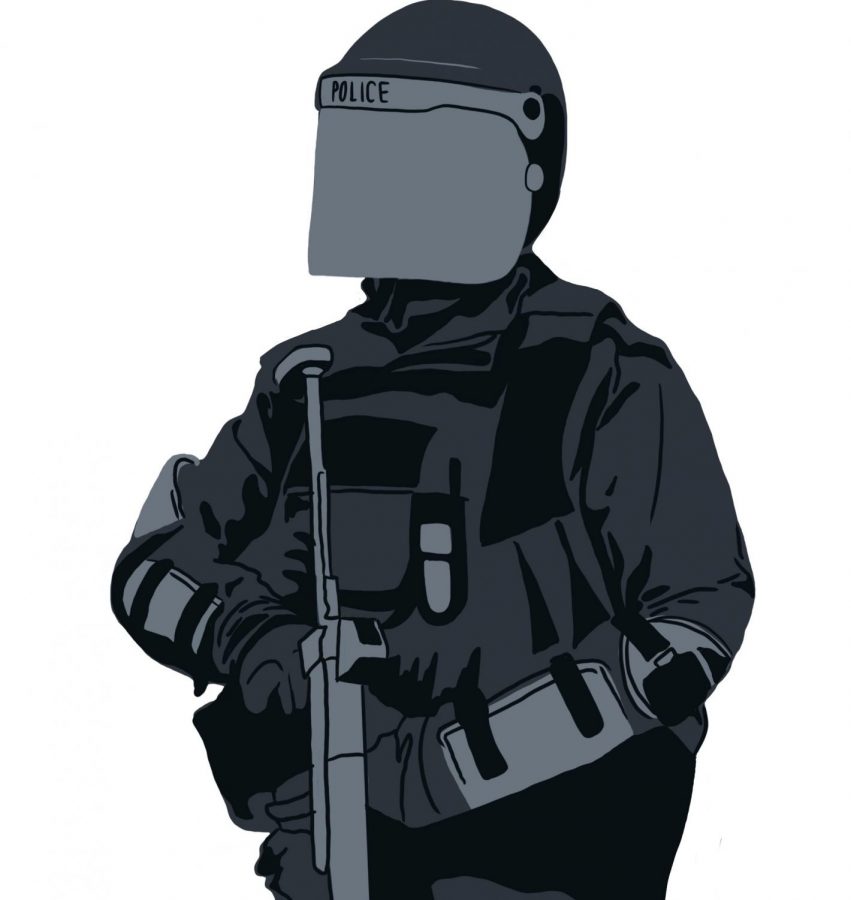Babysteps Towards Progress: Why police defunding is necessary for progress
May 28, 2021
During the civil rights movement of the 1960s, civil rights activist Malcolm X once proclaimed: “I will never say that progress is being made. If you stick a knife in my back nine inches and pull it out six inches, there’s no progress. If you pull it all the way out that’s not progress. Progress is healing the would that the blow made. And they haven’t even pulled the knife out, much less the wound.”
As witnessed by millions of Americans, the police killing of George Floyd last year reveals the knife that Malcolm X mentioned over half a century ago still remains deeply lodged in the back of America.
Although calls for justice among protestors were answered to a limited extent through the guilty verdict in the Chauvin trial, it still goes to show how far we still are from a morally just society. Even in 2021, we are only at the stage of police officers being held partially accountable for their actions.
In this moment, we as a nation should realize that we have the means—and most importantly the momentum—to not just add footnotes, but radical changes that alter the fundamental structure of our troubled police forces. It’s time for a radical makeover of the police, and it starts with defunding.
Defunding the police does not necessarily refer to an abolition of the police force; instead, the defunding movement focuses on reallocating a portion of police funding to other social programs.
Defunding is not a punitive measure with the purpose of punishing police officers. In fact, defunding is the opposite. If implemented correctly, defunding would reduce the various responsibilities of the police, which would increase the efficiency of police departments, and lead to long-term benefits for the local community in the process.
If you stick a knife in my back nine inches and pull it out six inches, there’s no progress.
— Malcolm X
Needless to say, the defunding movement has received a substantial amount of criticism from both sides of the political spectrum. While many misunderstand the goals of the defunding movement, others oppose it on the grounds that it is a superficial solution which will end up making cities less safe.
Anxiety surrounding defunding is understandable. After all, “defunding” is a frightening word at first glance. However, we need to consider the woeful inadequacies present in the current form of the police force.
An FBI report from 2017 revealed roughly 38% of murders, 66% of rapes, 70% of robberies and 47% of aggravated assaults go uncleared yearly. Overburdened by paperwork, documentation and other responsibilities, police officers are often overworked, adding to the inefficiency of the police force.
The police are not doing a fantastic job at keeping our cities safe.
For decades, the nation’s solution to crime has been to annually increase police budgets. Despite this, a 60-year period analysis by the Washington Post concluded that increased funding for a police force does not significantly reduce crime in any measure.
Another problem arises: police often being first responders to a mental health crisis. Due to insufficient training in mental health, police often find themselves resorting to violence when confronting an individual suffering from mental illness. According to a study by the Treatment Advocacy Center, individuals with untreated mental health issues are 16 times more likely to be killed during a police encounter than ordinary civilians.
By diverting funding to other social programs, the responsibilities of the, allowing the police to focus more on solving violent crimes. In short, police will have more time and energy to keep local communities safe.
The reallocation of funds could also assist the severely underfunded mental health programs in the United States. Defunding police would not only expand access to health care for millions of Americans, but also pave the way for the creation of specialized mental health crisis response teams composed of specially trained police officers and mental health professionals. The creation of such crisis response teams would reduce the violent interactions between police and those suffering from undiagnosed mental illness.
Although it may seem radical, a healthy amount of experimentation is necessary in order for a society to progress. Defunding and the creation of new crisis response teams are certainly far-reaching reforms, but if we really wish to change the current state of the police force, we cannot shy away from new ideas.







